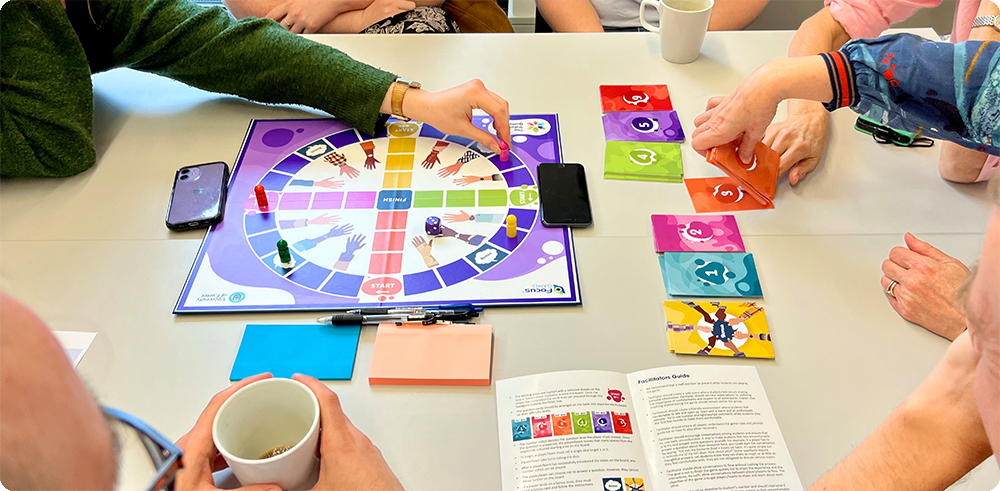Developed by Drs Musarrat Maisha Reza, Shalinee Dhayal, Iveren Winifred Nyinoh, Katarina Kos and Dominic Wiredu Boakye, and successfully piloted at the University of Exeter. This game has been integrated into first-year Medical Sciences tutoring and is being rolled out at five UK universities.It has been described by educators at the Advance HE Student Engagement Conference as a “low-key therapy session,” highlighting its ability to strengthen student connections and engagement.
Who developed the game?
Developed by Drs Musarrat Maisha Reza, Shalinee Dhayal, Iveren Winifred Nyinoh, Katarina Kos and Dominic Wiredu Boakye, and successfully piloted at the University of Exeter. This game has been integrated into first-year Medical Sciences tutoring and is being rolled out at five UK universities.It has been described by educators at the Advance HE Student Engagement Conference as a “low-key therapy session,” highlighting its ability to strengthen student connections and engagement.

"Great idea to foster belonging & really get to know each other"
"Really engaging - a slow progression for the future"
"This could be a stealth therapy session"
"I loved the game, it creates connection, allows other to show empathy and learn about cultures"
"The game is excellent. The questions are so well thought through that they encourage discussion without pressure"
"No one was scared of questions as they were focussed on winning the game"
Join us in bringing people closer, one conversation at a time.
For universities, a typical undergraduate teaching department with 200 students would need between 5 and 20 game sets, depending on session formats and student engagement levels.
By integrating this game into educational settings, institutions can help bridge the awarding gap and support students from minoritised and international backgrounds in building stronger peer networks for long-term success.